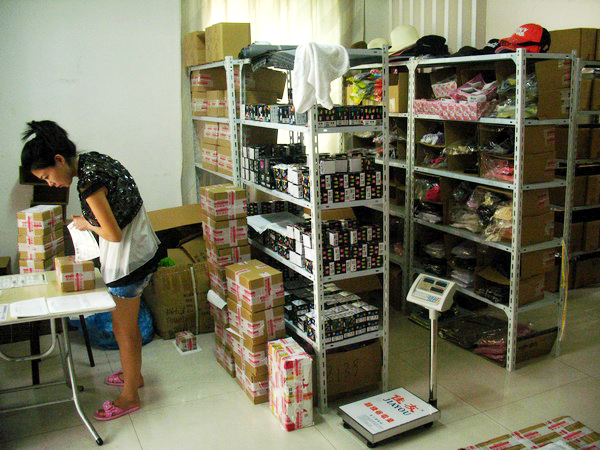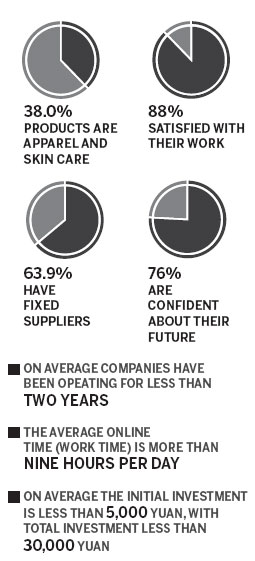Qingyanliu has reinvented itself as e-commerce incubation center
Qingyanliu used to be a small village of less than 1,500 farmers. But in the past seven years, the village has become a hotspot for e-commerce startups, and it is now the leading "Taobao Village" in China.
At present there are about 2,000 companies in the village in Zhejiang province, delivering around 10,000 parcels every day, with annual sales of about 800 million yuan ($126 million).
Related reading: Startups see Taobao as launchpad to success
Wang Hao is among the thousands of outsiders that came to Qingyanliu to start his business.
Wang used to run restaurants in Liaoning province, but he learned about the village on the Web and came for a look in April last year. Two months later he rented two 100-sq-m rooms.
"It was good for us to start our business here, because it is convenient for deliveries and we can purchase goods at a low price," says Wang, owner of Xinhao Accessories on Taobao, China's most popular online marketplace.
|
 A staff worker checks orders in Xinhao Accessories, an online company on Taobao, at Qingyanliu in Zhejinag province. [Photo / China Daily] |
"You can find whatever you want to sell in Yiwu at the lowest price in China. It's convenient and reduces costs."
Yiwu, as the world's small commodities center, provides about 1.7 million kinds of products. But the rebirth of the village as an e-commerce center was accidental. In 2005, the village finished constructing new houses with about 200,000 square meters of room available for rent, and the village committee decided to rent the extra rooms to people setting up businesses in the village.
|
 |
"What we provide in Qingyanliu, is a benign environment for e-commerce startups," says Liu.
For startups, the most obvious problem is the lack of capital, experience and techniques, says Liu Wengao, vice-chairman of Yiwu Jiangdong Electronic Commerce Association, who was then in charge of e-commerce development in the village.
"Newcomers cannot get a good price from factories directly due to their lack of credibility in the market. And the delivery fees will be quite high, because they don't send enough parcels when they are just starting up."
Liu set up an online supermarket involving a few distributors. The supermarket provides pictures of the products and newcomers can choose pictures from the supermarket and upload them to their Taobao stores. And every day, they can get goods from the distributors based on their sales needs.
The village also negotiates with express delivery companies on behalf of the e-commerce companies and gets a huge discount.
There are about 30 express delivery companies in the village now, transporting goods across the country every day.
For the first few years, the village also provides newcomers with training sessions where they can learn about operating an online store. Every Saturday afternoon, there is a weekly meeting in the village, mainly about sales techniques and market information.
"Many old hands will come and you can ask them questions," says Wang Hao.
